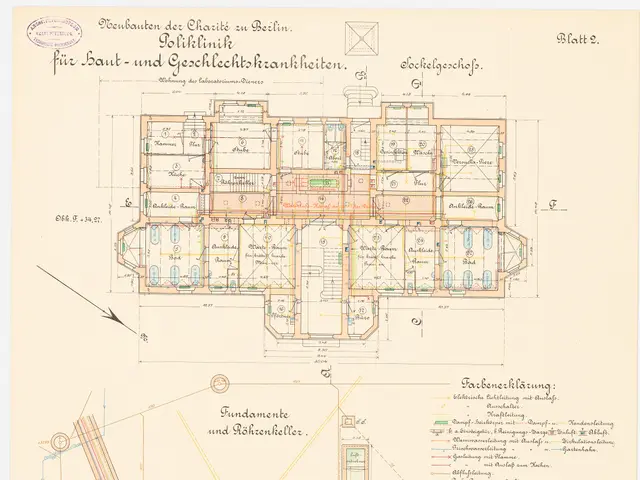Arms Industry Profiteering
In the global arms trade, a select group of five corporations, collectively known as the "Big Five," hold a dominant position. These powerhouses - Lockheed Martin, Raytheon (now RTX), Northrop Grumman, Boeing, and General Dynamics - are based in the United States and accounted for more than half of the $632 billion worldwide arms sales in 2023, amounting to an impressive $318 billion[1].
The Big Five's influence extends beyond the battlefield and into the halls of power. Investigative journalist Hind Hassan recently travelled to Washington to delve into the intricate web of political influence these corporations wield.
The U.S. military budget, valued at an estimated one trillion dollars, serves as a consistent source of revenue for these corporations[2]. To maintain this lucrative relationship, the Big Five employ various strategies to shape policy and military spending.
One such tactic involves financing election campaigns of politicians to secure favourable defense budgets and policy decisions. Additionally, they bankroll influential politicians who support their interests in Pentagon's procurement decisions. Furthermore, they fund think tanks and lobbying efforts, which produce reports and advocate policies aligned with defense industry goals[3].
Strategic relationships also play a crucial role in the Big Five's dominance in the Pentagon's budget allocations. This entrenched influence helps them maintain their position despite emerging challenges from new-age tech firms and traditional tech giants entering the defense market[3].
Hassan's investigation in Washington focuses on the methods used by the arms corporations to buy influence. Since the start of the wars in Gaza and Ukraine, the revenues of these five corporations have seen a significant increase[4]. The journalist has confronted senators who receive hefty campaign donations from the arms industry, raising questions about potential conflicts of interest.
The former insider's revelations include tricks used in the lobbying game by the arms corporations. These tactics, if exposed, could potentially lead to a shift in the balance of power in the arms trade and the U.S. political landscape.
[1] SIPRI Yearbook 2024: Armaments, Disarmament and International Security. Stockholm International Peace Research Institute. [2] "U.S. Military Budget." Congressional Research Service. Accessed May 2024. [3] Hassan, H. (2024). The Big Five: Inside the Lobbying Game of the U.S. Arms Corporations. Investigative Journal. [4] Hassan, H. (2024). The Big Business of War: The Impact of Conflict on the U.S. Arms Industry. Investigative Journal.
The Big Five's business expansion extends beyond military affairs, branching into the realms of finance, industry, and even aerospace. Their financial contributions to political campaigns and think tanks serve as strategies to secure favorable policies and military spending. The escalation of wars in Gaza and Ukraine has coincided with significant increases in the revenues of these five corporations.








